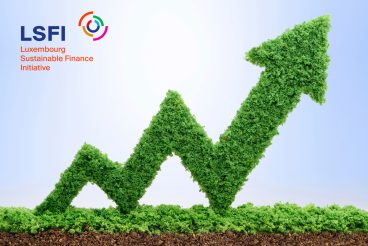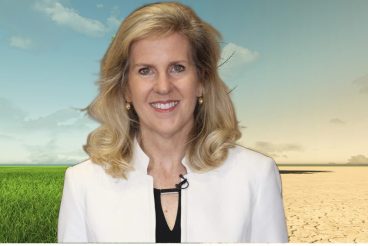Assessment of how a company is governed and whether it manages its business in a responsible way is one of the three central issues in understanding ESG risks and opportunities. Luxembourg Institute of Directors (ILA) member and independent director Jane Wilkinson discusses what exactly corporate sustainability and governance are, and the role of a non-executive director in the Luxembourg business ecosystem.
You can keep up with what ILA are up to at the upcoming Fund Day event, organised in collaboration with PwC Luxembourg. The annual conference offers insight and perspectives on the evolving face of fund governance in Europe and in Luxembourg. Click this link to discover more.
What role does governance play in corporate sustainability?
Corporate governance, in its purely legal definition, is the structure of rules, practices, and processes used to direct and manage a company. The board of directors acts as a corporate steward, ultimately overseeing all the company’s key business decisions: its strategy, long-term vision and mission.
Traditionally the purpose of governance has been to safeguard the interests of the shareholders and ensure their financial returns. However, at least in Europe, over the past 10 years or so there has been a clarification of its scope to encompass the impact on all a company’s stakeholders, including employees, clients, suppliers, the wider community – everyone who has a relationship with the business.
Following on from your recent comments as part of a panel at the ILA Director’s Day, what is the difference between a non-executive and an independent director?
It is typical for a board of directors to comprise a diverse group of individuals, including members who have skills acquired in or knowledge of the particular business, and others who can bring a different perspective from outside the company and sometimes even the industry.

The job description doesn’t change depending on whether you are a non-executive or independent non-executive director – your goal is to ensure the company is run properly. A classic non-executive, however, tends to be somebody who was involved operationally in a company and remained on the board when they have stepped back from the operational role. They would have in-depth knowledge of the company and its culture.
An independent non-executive director will typically be somebody completely external to the company, somebody at a distance from its operations, a good consultant who can act as a trusted advisor and provide external oversight. They may be better placed to challenge the management due to the absence of conflict of interest. But both types of non-executive directors have the best interests of the company at heart and make decisions in the best interests of the shareholders as well as other stakeholders.
How do non-executive directors keep up to date with governance best practice?
Non-executive Directors are on our own – so it is through associations such as ILA, which provides professional development opportunities and governance information, that we keep up to speed with current compliance requirements and legislation, especially through networking opportunities such as the annual Directors Day. When we see or hear things on the ground at such events, through interaction with our peers, about how another director has faced a certain compliance issue or legislative requirement, we typically think: is that relevant to one of my mandates? There is a lot of knowledge-sharing within the Luxembourg ecosystem.
During the panel discussion you spoke about how independent non-execs can bring an unbiased view to the table. How does this fit with a sustainability agenda that you personally hold to be important?
A director with strong views on these issues is probably only going to accept mandates with companies that are aligned with their values anyway.
If a company has a clear and well-defined strategy, the role of the directors is to ensure it is implemented and executed properly. On a fund board, for example, this strategy will be set out in the prospectus – you can only but follow it, there is no room for personal views. A director will make sure the company is aligned with its stated investment policy, or sustainable investing strategy if one has been defined, and help keep the company up to date on the regulatory framework or new reporting requirements.
Where there could potentially be an issue is if there is no clear framework or strategy. But this would be rare, as the board already has a role to play in approving the strategy, which is usually a collegial project involving the company’s chief executive officer and the rest of the executive committee.
How would you respond to the suggestion that it’s just a fashion to have someone with ESG credentials on a board’?
Sustainability is without doubt the topic of the moment and some people may refer to it as a trend or fashionable. But this isn’t going anywhere soon – it will just become more intense. As individuals and companies become more aware of the impact of climate change and the accompanying social issues, we have a choice: Do we keep going on producing and consuming? Consumers are voting with their wallets, and employees also want to feel they’re contributing in an impactful way, or at least causing the least harm possible.
What sustainability opportunities and challenges face companies in Luxembourg, particularly in the financial sector?
In the financial sector, it is being driven by EU regulation. In my view we would still hardly be talking about sustainability without the European rules, which have gone a long way to accelerate movement in the right direction.
But we need a balance – if a big bank is financing fossil fuel activity, it is difficult to get out of an existing agreement, such as a 25-year loan. While every little bit counts, it will take years to decarbonise the economy completely. These things don’t happen overnight. But I believe that with the right people, with robust governance from non-executive directors that support, get involved with and are rigorous in implementing sustainability strategies, it will take care of itself.
Jane Wilkinson spent more than 20 years at KPMG Luxembourg as an audit partner. As ESG emerged from corporate social responsibility and changed from being nice-to-have to must-have, she moved to the Luxembourg Stock Exchange as head of sustainable finance with responsibility for the Luxembourg Green Exchange. Jane launched her own company providing expertise in corporate governance and sustainability in 2019. You can find out more about her work at www.rippleeffect.lu.
ILA provides training on best practice regarding sustainable corporate governance and other relevant topic for boards, supports the networking of directors and governance professionals, and issues recommendations and clear views on corporate governance issues. You can find out more about ILA by visiting the organisation’s website.
The link to the report Non-Executive Directors in Luxembourg – NEDs, iNEDs and the Concept of Independence, can be found here.






